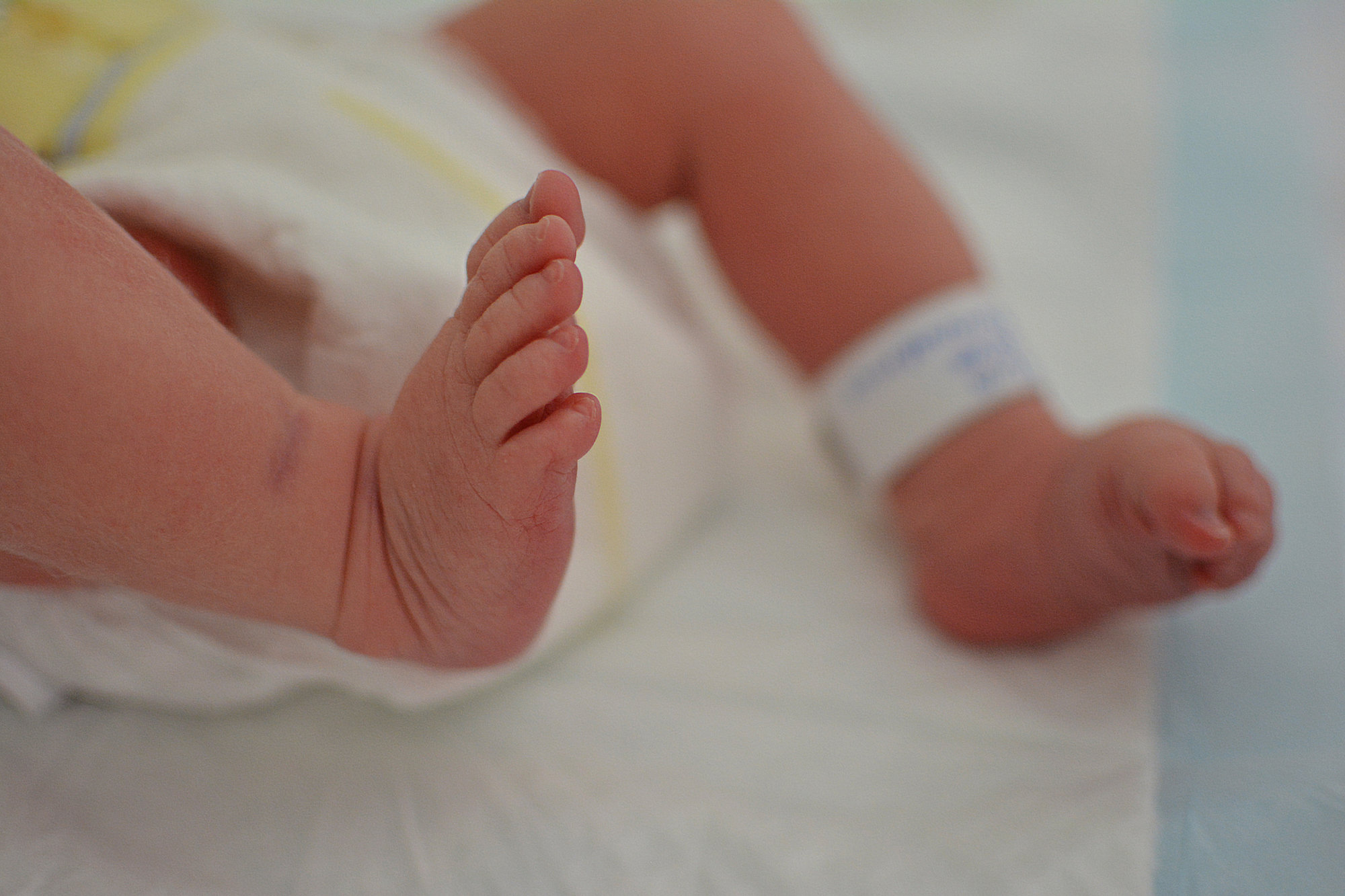
When you think about practicing proper social distancing, you likely to think about staying away from gatherings of multiple people, or even essential public spaces, like grocery stores, if you can help it. But some physicians have begun applying the concept to labor and delivery. Although New York Governor Andrew Cuomo just blocking hospitals' policy to separate expectant parents in the delivery room, current Centers for Disease Control and Prevention (CDC) and American College of Obstetricians and Gynecology (ACOG) recommendations could require that new parents diagnosed with COVID-19 be separated from their newborn.
THE ACOG says that a mom who has been diagnosed with COVID-19 or is a person under investigation should be temporarily separated from her newborn.
In an effort to reduce the transmission of the novel coronavirus, facilities should consider putting the infant and infected parent in separate rooms, the ACOG noted.
The CDC echoes this guidance and explains that the decision to end the separation "should be made on a case-by-case basis."
Clinicians, infection prevention and control specialists, and public health officials should all weigh in, according to the CDC. The decision should take into account disease severity, illness signs and symptoms, and results of laboratory testing for the virus that causes COVID-19, SARS-CoV-2.
Basically, new parents infected with the novel coronavirus, SARS-CoV-2, are subject to the same considerations and transmission-based precautions for any patient hospitalized with COVID-19.
There are also new guidelines on breastfeeding.
The CDC has developed Interim Guidance on Breastfeeding for a Mother Confirmed or Under Investigation for COVID-19, although the decision whether and how to breastfeed should be determined by the mother in coordination with her family and health care practitioners.
Experts aren't necessarily concerned that the virus will pass through breast milk, but instead, an infected mother might transmit the virus via respiratory droplets while breastfeeding.
The ACOG advised, "A mother with confirmed COVID-19 or who is a symptomatic [person under investigation] should take all possible precautions to avoid spreading the virus to her infant, including washing her hands before touching the infant and wearing a face mask, if possible, while breastfeeding. If expressing breast milk with a manual or electric breast pump, the mother should wash her hands before touching any pump or bottle parts and follow recommendations for proper pump cleaning after each use. If possible, consider having someone who is well feed the expressed breast milk to the infant."
As of right now, hospitals such as Johns Hopkins Hospital and Mass General Hospital are already taking these recommendations into consideration.
“It comes down to assessment of risk versus benefits,” Dr. Jeanne Sheffield, director of obstetrics and maternal-fetal medicine at Johns Hopkins, told USA Today. “Right now, we have come down to say that the risk of skin-to-skin breastfeeding COVID positive moms is high enough.”
And on its website, Mass General explained, "To reduce the risk of this transmission, temporarily separating a mother who has suspected or confirmed COVID-19 from her baby may be recommended by the health care team. This will be discussed in detail with you and your family at the hospital where you will have a chance to ask questions of both your OB provider and the baby’s newborn team. Mothers can still express breast milk and this milk should be fed to the newborn by a healthy caregiver."
Ultimately, the decision to separate from a newborn to prevent transmission of the disease will be a heart-wrenching one for any parent.
For that reason, let's hope health care providers work with their patients to land on the right care and, if absolutely necessary, isolation plan.
As Dr. Christian Pettker, chief of obstetrics at Yale New Haven Hospital in Connecticut and associate professor at Yale School of Medicine, told Today, separation "decisions are generally made through shared decision-making with the patient and health care provider and weighing the risks and benefits. Women are allowed to make their own health care decisions and decisions for their children."




